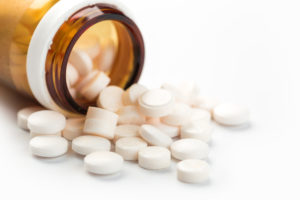N-nitrosodimethylamine NDMA in ranitidine products is a cause for alarm because it poses a threat to human anatomy. Getty Images French drugmaker Sanofi recently announced a recall of over-the-counter Zantac the widely used acid reflux medication in the US.
 What Kind Of Cancer Does Zantac Cause Sibley Dolman Gipe Accident Injury Lawyers P A
What Kind Of Cancer Does Zantac Cause Sibley Dolman Gipe Accident Injury Lawyers P A
About Zantac and Cancer Zantac ranitidine belongs to a family of drugs called histamine-2 or H2 blockers.

What kind of cancer is ranitidine causing. In 2004 the National Cancer Institute published a study linking bladder cancer with ranitidine use. In addition to stomach cancers there are concerns that Zantac ranitidine and the associated presence of NDMA may also cause colorectal cancers or possible bladder cancers. Exposure to large amounts of NDMA is thought to cause gastric or colorectal cancer according to the World Health Organization.
Ranitidine and other H2 blockers decrease the amount of acid produced in the stomach. If you had been taking Zantac and were diagnosed with any of the following. However it now appears that ranitidine is a fundamentally unstable molecule and NDMA forms during the degradation or breakdown of the molecule meaning that no form is safe.
What You Need to Know and How Ranitidine Causes Cancer. Long-term exposure to NDMA has been linked to many types of cancer including. The World Health Organisation classifies NDMA as a probable human carcinogenic which means that it has the potential to cause cancer.
Nitrates are found in foods such as bacon hot dogs or grilled meats. What is the evidence that Zantac causes cancer. Ranitidine is classified as part of a group of antacid drugs known as H2 blockers.
NDMA causes cancer in animals and probably in humans as well. The FDA found that many Zantac ranitidine samples contained unacceptably high levels of NDMA N-Nitrosodimethylamine. Types Of Cancer Linked To Ranitidine Generic Zantac The cancerous chemical found in Zantac ranitidine products NDMA has been linked to several different types of cancers.
The main ingredient in Zantac is ranitidine hydrochloride. Genotoxic effects in rodents given high oral doses of ranitidine and sodium nitrite Oral intake of ranitidine increases urinary excretion of N-nitrosodimethylamine. Consumption of NDMA has been positively associated with gastric and colorectal cancer.
This is particularly true when nitrates are present. The story is unfolding quickly and many details remain murky. The medication sold as Zantac ranitidine has been connected to high levels of a cancer-causing impurity and has been recalled.
The primary types of cancer linked to excessive NDMA ingestion include. Cancers of the intestines including colorectal cancer cancer of the esophagus. In fact NDMA has been used to create cancer in rats in lab testing.
Researchers at Memorial Sloan Kettering Cancer Center in. The heartburn and ulcer medication Zantac is being taken off store shelves as concerns increase over cancer-causing ingredients. Initial testing suggested generic Zantac was contaminated with NDMA.
A response to ranitidine does not mean that your symptoms are not due to gastric or duodenal cancer stomach cancer affects over 26000 people in the US. Updated April 24 2021 The Zantac-cancer connection is bolstered by recent voluntary recalls by the drug manfuacturers. H2 blockers are called antacids and the OTC versions are commonly used to treat and prevent heartburn gastroesophageal reflux disease or GERD.
The risk is higher in older people. If you or a family member take ranitidine Zantac to relieve heartburn you may have heard that the FDA has found a probable human carcinogen a substance that could cause cancer in it. NDMA is an environmental contaminant that is found in water and food.
And Canada over concerns of possible. According to online pharmacy Valisure ranitidines inherent instability causes a chemical reaction that produces high levels of NDMA in the digestive tract. Endoscopy is the only way to check for stomach cancer.
13 2019 HealthDay News -- A substance that could cause cancer has been found in some ranitidine heartburn and ulcer medicines. The agencys investigation of ranitidine seeks to uncover the root cause of NDMA found in the commonly used medication. The question of ranitidine and cancer first emerged last year as part of broad revelations concerning trace contamination of various drugs with nitrosamine compounds such as N-nitrosodimethylamine.
Again the risk of these cancers is rare and is still up for debate in terms of exposure to levels of NDMA present in these medications.
